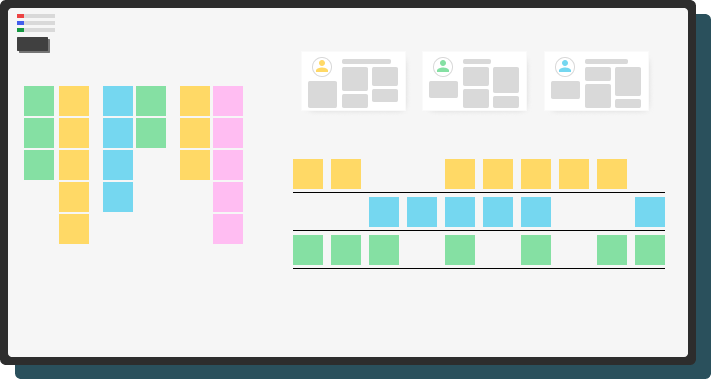
August 3, 2022
How much time do you need in-person with the customer?
Ashu Chatterji
By Ashu Chatterji, CEO at Caravel Labs This is a question that we often encounter in different situations in our consulting practice. Our answer that we would like to spend as little time meeting customers in-person, or meeting in general, is often met with surprise. In the consulting industry, where much value has been put traditionally in the ability to travel to attend large events, meet with powerful and influential stakeholders and demonstrate one’s credential as a “thought leader”, we can understand why our position would be considered unconventional.
At Caravel Labs, we value collaboration, and understand that the project delivery team may benefit from participating in other meetings and events. However, we also realize that the time spent in traveling to and attending such meetings competes with software delivery, which at the end of the day is what we believe our customers have entrusted us with. We therefore look at ways to minimize meeting time, without compromising on the clarity that collaborative activities are intended to bring.
Our essential partner in this quest is the customer-assigned product owner. We count on the product owner to take overall accountability for establishing a clear vision of what the product is expected to achieve during the period of performance, to identify and prioritize the features needed to achieve the vision, help clarify design details and provide the team with timely decisions by conferring with technical stakeholders as they (product owner) deem fit. The product owner responsibilities are as follows:
-
Responsible for defining and prioritizing project objectives in the form of the product backlog
-
Must provide enough information for the development team to continue working uninterrupted and be responsible all decisions made about what functionality to build and when
-
Responsible for coordinating and communicating product decisions to all project stakeholders
Product ownership by committee is not effective or efficient, no matter how complex the project mission or the stakeholder map. The product owner has to be an individual assigned to the Caravel Labs team by the customer. They may be, and frequently are, assisted by a product management team that manages all stakeholders.
To start with, all other sprint ceremonies are best conducted remotely:
-
Sprint planning, every two weeks
-
Sprint review, every two weeks
-
Sprint retrospective, every two weeks
-
Backlog refinement meeting, held at the same time alternating with the sprint review
Prototype Testing and Usability tests with actual users result in a better product, but we like to conduct these remotely as well, wherever possible. Not only are users less impacted by this arrangement in most cases, using remote collaboration platforms like Microsoft Teams serve the dual purpose of allowing effective remote meetings and the benefit of easily available recordings that can be used for future reference to design better software.
The only collocation with the customer-assigned product owner that we recommend (but not require) is for a 3-day lean UX research Exploration Workshop based on the Design Thinking approach, following a specific agenda, and facilitated by the Caravel Labs-assigned UX Generalist and Lead Engineer. The purpose of this workshop is to establish the product backlog for the next three months in the most efficient manner. The Exploration Workshop is repeated every three months. Provided the product owner is knowledgeable, empowered, and available to support the vision, this 3-day timeframe is sufficient in our experience to achieve this goal effectively. This is also the time that one benefits significantly from in-person collaboration, as it minimizes distractions, and maximizes the sensory connection needed for a human-centered design exercise.
Caravel Labs policy on travel is simply to eliminate it wherever possible. Not only is it exceedingly wasteful – a week of out-of-town travel reduces productivity by 40% on an average – the environmental impact of travel is also very great. Having said that, we do appreciate from our own experience that in situations such as the exploration workshop, the efficiencies gained from collocation early in the project, such as for the exploration workshop, will offset the waste resulting from travel, but we like to treat such travel requirements as rare exceptions.
Lastly, and perhaps most importantly, we believe that no advantages of collocation are worth compromising the physical and psychological safety of all the participants, and most definitely that of our team members. As an example, while we are still in the middle of the COVID-19 pandemic, our policy is to follow the more restrictive of (a) the United States Centers of Disease Control’s (CDC) guidelines on travel and collocation during the pandemic and (b) the individual team members personal comfort in traveling or collocating.
The answer to the question of how much time one needs with the customer is hardly an exact science, but we continue to find ways to make collaboration more efficient. To us, this represents an opportunity for some of the greatest innovation from within the software engineering industry. We would love to hear about your experiences and to share in more detail how we are faring in this journey.

© 2023 Caravel Labs - All rights reserved.
